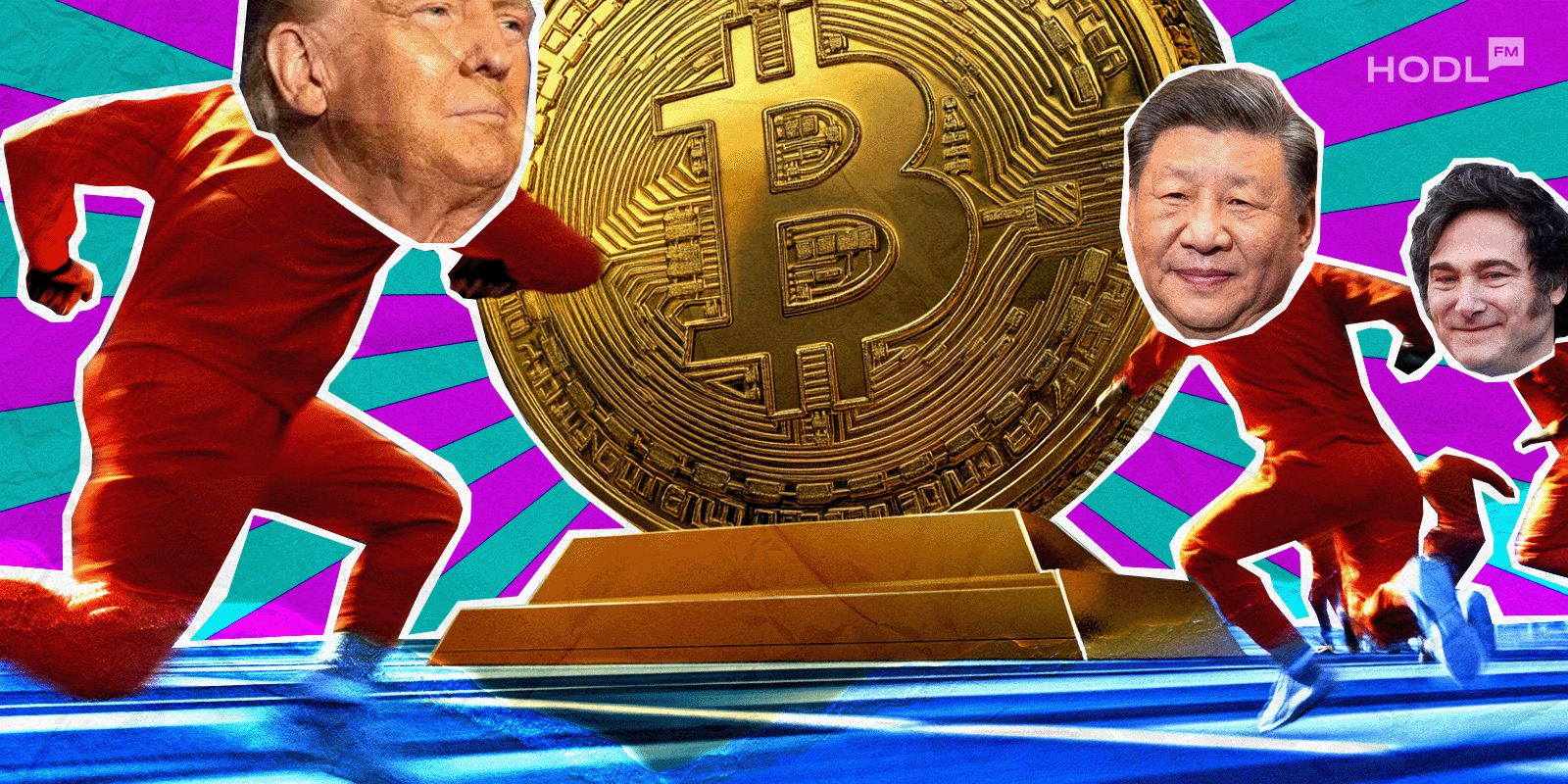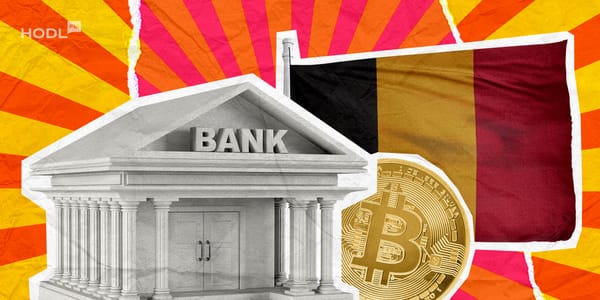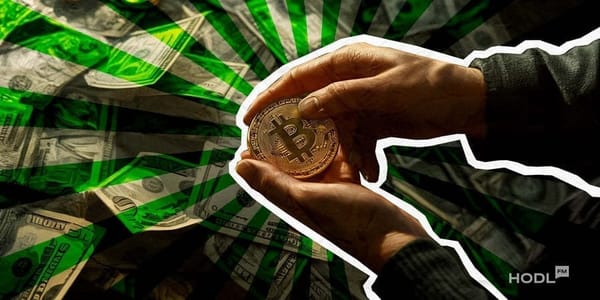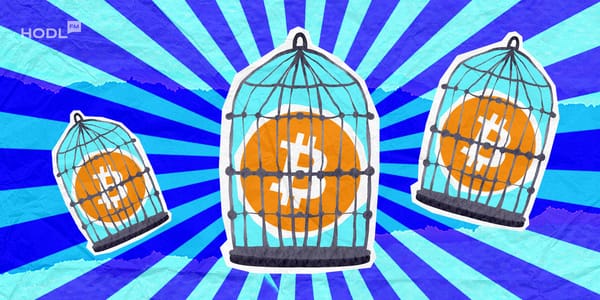Once dismissed as a meme or financial bubble, Bitcoin has proven its resilience. It rebounded from crashes in 2013, 2018, and 2022 to now be valued at $100,000. The conversation has evolved from skepticism about Bitcoin to considering its role in national strategic reserves.
Why the sudden hype? It's not just private investors experiencing FOMO – governments are feeling it, too. Early adopters could gain significant financial and strategic advantages. Moreover, the more countries incorporate Bitcoin into their reserves, the higher its price will rise. That's why nations are closely watching each other to see who will be the first to take the plunge.
In this article, we will explore Bitcoin's suitability for national reserves, examine its adoption process by countries, and analyze its pros and cons.
The Theory of Strategic Reserves
A strategic reserve is a stockpile of a systemically important resource that can be used during crises or supply disruptions. Its primary purpose is to provide stability and security in critical sectors.
In the United States, strategic reserves include gold, which supports financial stability, and petroleum, which safeguards against oil shocks. Canada, for instance, maintains a strategic reserve of maple syrup, while China holds reserves of metals, grains, and pork.
The First Attempts
In 2021, El Salvador, led by President Nayib Bukele, became the first country to adopt Bitcoin as legal tender, aiming to provide financial services to its unbanked citizens. The government introduced the "Chivo" wallet, but by 2024, only 8% of the population used Bitcoin occasionally. Due to IMF concerns, Bitcoin's mandatory status was revoked in 2025, though the government still holds Bitcoin reserves.
The Kingdom of Bhutan took a different route by leveraging its abundant hydroelectric power resources to mine Bitcoin. Starting in 2019, Bhutan's state-owned investment arm, Druk Holding & Investments, began mining operations, amassing over 13,000 Bitcoins, valued at approximately $780 million as of September 2024.
Despite not being among the world's most developed nations, both El Salvador and Bhutan have demonstrated innovative approaches to integrating Bitcoin into their economies, setting a precedent for other countries.
U.S. Signals Strong Interest in Bitcoin Reserves
In 2024, the United States significantly moved toward incorporating Bitcoin into national reserves. President Donald Trump proposed a strategic Bitcoin reserve, establishing a Digital Assets Task Force. This move sent ripples throughout the whole world.
Senator Cynthia Lummis introduced the BITCOIN Act of 2024, outlining a plan for the Treasury Department to acquire 200,000 Bitcoins annually over five years, aiming to amass a reserve of 1 million tokens – roughly 5% of Bitcoin's capped supply. The funding would come from Federal Reserve profits and the sale of part of the U.S. gold reserves. Once accumulated, the reserve would be held for at least 20 years and could potentially reduce U.S. debt by half.
The Strategic Bitcoin Reserve is the only tool I see that can help people in my generation right the wrongs that we did to younger generations and generations to follow with respect to our debt and fiscal mismanagement.
— Senator Cynthia Lummis (@SenLummis) February 1, 2025
My interview with @Dennis_Porter_ and @BITVOLT ⬇️⬇️⬇️ https://t.co/pjCtOxheET
Additionally, 20 U.S. states have introduced bills to establish Bitcoin reserves. Texas, Illinois, Wyoming, Arizona, and Florida have formal proposals. Investment firm VanEck estimates state-level investments could reach $23 billion, equivalent to approximately 247,000 Bitcoins.
We analyzed 20 state-level Bitcoin reserve bills.
— matthew sigel, recovering CFA (@matthew_sigel) February 12, 2025
If enacted, they could drive $23 billion in buying, or 247k BTC.
This sum is independent of any pension fund allocations, likely to rise if legislators move forward. pic.twitter.com/5AZnkiwTZf
What About Other Nations?
As the U.S. debates Bitcoin's role in national reserves, European nations take varied approaches. Their politicians publicly express opposing opinions on the matter.
The Czech Republic has taken a leading role. Aleš Michl, Czech National Bank Governor, proposed investing up to 5% of the CNB's €140 billion reserves in Bitcoin. However, European Central Bank President Christine Lagarde dismissed the idea, stating, "Reserves have to be liquid, secure, and safe. I am confident that Bitcoin will not enter the reserves of any of the central banks of the General Council."
Czech National Bank’s goal is price stability. When we took office in July 2022, inflation was 17.5%. We brought it down to target. We are also diversifying reserves—gradually increasing gold holdings from 0% to around 5% and planning for 30% in equities. An asset under… https://t.co/Au7fwJVHEU
— Aleš Michl (@MICHLiq_) January 29, 2025
In Germany, former Finance Minister Christian Lindner urged the European Central Bank and Bundesbank to consider Bitcoin: "Crypto-assets now account for a significant proportion of global wealth growth. Germany and Europe must not allow themselves to be left behind here again." Bundesbank President Joachim Nagel remains skeptical, calling Bitcoin "digital tulips" and warning, "This is not something central banks should look at."
Krypto-Assets machen inzwischen einen bedeutenden Teil des globalen Wohlstandszuwachses aus. In den USA wird sogar überlegt, dass die Notenbank sie in ihre Reserve aufnimmt. Auch Frankfurt sollte das prüfen. Deutschland und Europa dürfen sich hier nicht wieder abhängen lassen. CL https://t.co/q8h339kP1y
— Christian Lindner (@c_lindner) December 29, 2024
A similar situation is in Poland. Presidential candidate Sławomir Mentzen promised to create a Bitcoin reserve. However, National Bank of Poland President Adam Glapiński dismissed Bitcoin, emphasizing reserves must be "absolutely secure" and stable.
Poland should create a Strategic Bitcoin Reserve.
— Sławomir Mentzen (@SlawomirMentzen) November 17, 2024
If I become the President of Poland, our country will become a cryptocurrency haven, with very friendly regulations, low taxes, and a supportive approach from banks and regulators.
BTC to the Moon! pic.twitter.com/izKc4spkkV
In Switzerland, the idea of a Bitcoin reserve unexpectedly originated from the people. Сryptocurrency advocates launched an initiative to mandate the Swiss National Bank to hold part of its reserves in Bitcoin. A national referendum could be triggered if 100,000 signatures are collected within 18 months.
Asia's Bitcoin adoption is not uniform, but there are also emerging trends. In Japan, Senator Hamada Satoshi submitted an inquiry about a Bitcoin reserve, but Prime Minister Ishiba Shigeru stated that Bitcoin doesn't meet the criteria for foreign exchange assets aimed at stabilizing markets and ensuring liquidity.
While China has a highly restrictive attitude towards Bitcoin, Hong Kong has taken its own path. Its legislator. Wu Jiezhuang, proposed adding Bitcoin to the city's financial reserves to boost economic stability. He argued, "If economic powerhouses incorporate Bitcoin into strategic reserves, its value will stabilize, prompting more countries to follow suit." Wu recommends a cautious approach, investing only a minimal portion of reserves in Bitcoin through ETFs.
In the Americas, countries also follow the example of their neighboring competitors, the United States and El Salvador.
Brazilian Congressman Eros Biondini proposed a Bitcoin sovereign strategic reserve (ResBit) to diversify assets and protect international reserves from geopolitical risks. The plan aims for Bitcoin to constitute 5% of Brazil's national reserves.
In Canada, so far Vancouver has shown a bold initiative to adopt Bitcoin as a reserve. Its mayor has passed a motion to Vancouver's council to make the city Bitcoin-friendly. It advocates using Bitcoin as a reserve asset and accepting it for tax payments and fees.
Meanwhile, it seems that another El Salvador will appear in Suriname, South Africa. A presidential candidate of Suriname, Maya Parbhoe, announced plans to replace the Suriname dollar with Bitcoin as the national currency and issue Bitcoin bonds. She stated, "We must build an alternative that doesn't repeat the same problems that caused this mess but instead grows a new system based on what Satoshi Nakamoto envisioned."
Factors Influencing Bitcoin Adoption in National Reserves
As seen from the examples above, countries don't have a critical need to hold Bitcoin in their reserves, but they are afraid of missing the moment when others start stockpiling it. The leading financial "trendsetter" for all nations is the U.S. Whether Bitcoin will be widely adopted as part of national reserves largely depends on them.
In most countries, the idea of adding Bitcoin is not a primary strategy but rather an alternative one. Such proposals come from presidential candidates or politicians – people who don't have direct decision-making power. Meanwhile, sitting presidents and central bank governors remain firmly opposed.
The main reasons countries consider Bitcoin for national reserves are hedging against inflation and portfolio diversification. Since Bitcoin has a fixed supply of 21 million, it cannot be devalued like fiat currencies. Additionally, its price does not correlate with traditional reserve assets like gold or foreign currencies, making it a good option for a reserve portfolio.
However, the biggest obstacle is a lack of trust in it as a financial instrument. Its primary flaw is volatility since its price remains highly dependent on market sentiment. However, if multiple countries begin holding it as a reserve asset, this could significantly strengthen its stability.
Another challenge is liquidity. It refers to the ability to sell an asset without significantly affecting its price. That's why some countries plan to allocate only a small portion of their reserves to Bitcoin – ensuring that it won't have a major impact on the entire portfolio in case of a price drop.
Integrating Bitcoin into national reserves is a risk for central banks. It would require a shift in reserve management strategies, solid infrastructure development, clear regulations, and public trust. But if it really happened, it would reshape the global economy and trigger a real revolution in the financial world.

Disclaimer: All materials on this site are for informational purposes only. None of the material should be interpreted as investment advice. Please note that despite the nature of much of the material created and hosted on this website, HODL FM is not a financial reference resource and the opinions of authors and other contributors are their own and should not be taken as financial advice. If you require advice of this sort, HODL FM strongly recommends contacting a qualified industry professional.




